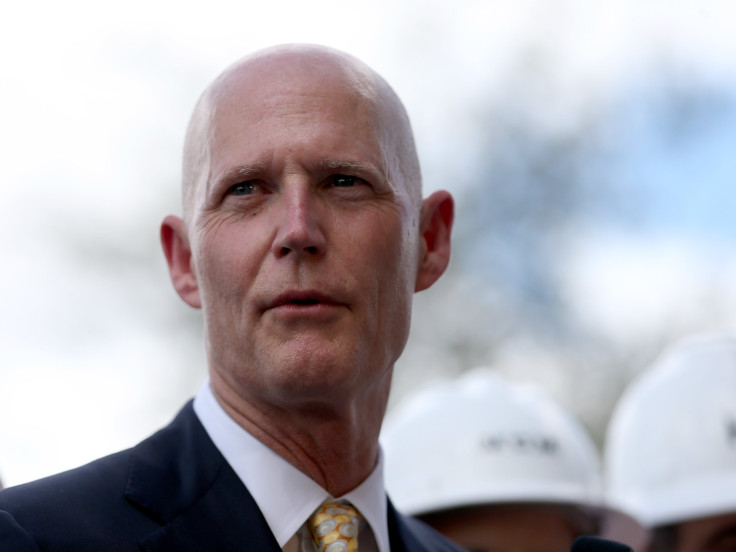Florida Gov. Rick Scott Opposes Trump Administration's Plan To Expand Offshore Drilling

Republican Florida Gov. Rick Scott condemned President Donald Trump administration's proposed plan to expand offshore oil and gas drilling in the United States' coasts.
The proposal, which will open up protected areas in the Pacific and Atlantic oceans for drilling, has sparked outrage among environmentalists, coastal states, and tourism industry, Reuters reported.
Governor Scott’s Statement on Trump Administration’s Plan on Offshore Oil Drilling: pic.twitter.com/iQqNU9afsQ
— Rick Scott (@SenRickScott) January 4, 2018
In a statement issued by the Department of Interior, Secretary of Interior Ryan Zinke has proposed a plan for “unleashing America’s offshore oil and gas potential.”
However, environmentalists expressed concerns over the ramifications of this move, as it will negate the environmental protection barriers put in place by the Obama administration.
The plan proposes for "responsibly developing the National Outer Continental Shelf Oil and Gas Leasing Program (National OCS Program) for 2019-2024, which proposes to make over 90 percent of the total OCS acreage and more than 98 percent of undiscovered, technically recoverable oil and gas resources in federal offshore areas available to consider for future exploration and development. By comparison, the current program puts 94 percent of the OCS off limits."
The program also proposes the largest number of lease sales in U.S. history for the National OCS Program’s 5-year lease schedule.
The Draft Proposed Program includes 47 potential lease sales in 25 of the 26 planning areas – 19 sales off the coast of Alaska, 7 in the Pacific Region, 12 in the Gulf of Mexico, and 9 in the Atlantic Region.
Apart from the governor of Florida, the plan to expand drilling along the coast has been opposed by the governors of New Jersey, Virginia, South Carolina and North Carolina, Guardian reported.
The governors of Washington, California and Oregon have also expressed their disapproval of the plan as they deem the decision to be a colossal threat to the fragile coast and the eco system of their states.
However the president, who in the past has scoffed at the suggestion of global warming and withdrawn America from the Paris Climate Accord, does not see the havoc it can cause to the country's eco-system.
Officials in the Trump administration were unperturbed by the concerns expressed by environmentalists. In fact, they are strong proponents of the proposal put forth by the department.
“By proposing to open up nearly the entire OCS for potential oil and gas exploration, the United States can advance the goal of moving from aspiring for energy independence to attaining energy dominance,” said Vincent DeVito, counselor for Energy Policy at Interior. “This decision could bring unprecedented access to America’s extensive offshore oil and gas resources and allows us to better compete with other oil-rich nations.”
“Responsibly developing our energy resources on the Outer Continental Shelf in a safe and well-regulated way is important to our economy and energy security, and it provides billions of dollars to fund the conservation of our coastlines, public lands and parks,” said Secretary Zinke.
Opponents of the move have raised the spectre of the 2010 Deepwater Horizon explosion in the Gulf of Mexico, one of the worst environmental disasters in US history. The toxic legacy of the incident on the BP rig that caused millions of gallons of crude oil to flood into the gulf is still felt, Guardian reported.
© Copyright IBTimes 2024. All rights reserved.











